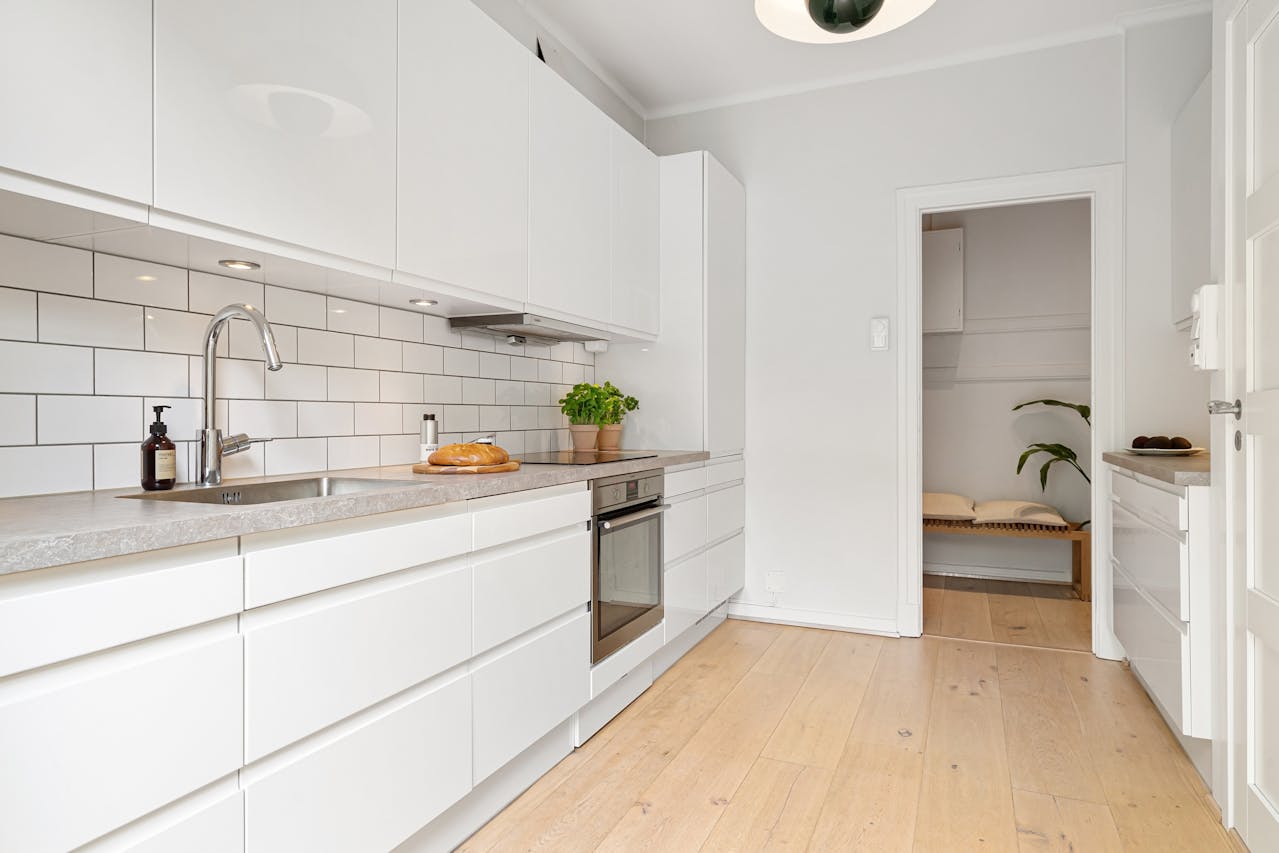Many gardeners dream about growing a beautiful mandarin or lemon tree in their backyard. Success in cultivating citrus fruits lies in three main components: proper watering, good lighting, and regular feeding. I want to talk about the best fertilizer for citrus trees in this article because these plants require a large number of minerals and trace elements. They make a supply of nutrients, quickly depleting the soil, so feeding should be regular. Find out which foods are best for it and when to treat your trees.
Affiliate links and images placed from the Amazon Product Advertising API on 2025-10-17
5 Best Fertilizers for Citrus Trees Reviewed
- Jobe's Organics Granular Fertilizer – My Top Pick
- Espoma Plant Food – Budget-Friendly Fertilizer for Citrus Plants
- Miracle-Gro Spikes – Premium Citrus Food Fertilizer
- Urban Farm Fertilizer – Citrus Plant Food Concentrate
- Down to Earth Citrus Mix – Granulated Organic Citrus Fertilizer
For good development and fruiting, citrus cultures require a sufficient amount of nutrients. With their deficiency, the crown of citrus turns pale, the leaves fall off, and the buds and fruits do not form right. In this section, you will find reviews of five excellent fertilizers.
1. My Top Pick: Jobe’s Organics Granular Fertilizer
Affiliate links and images placed from the Amazon Product Advertising API on 2025-10-17
I consider Jobe’s citrus fruit fertilizer the best of the best for its versatility. You can use it for both fertilizing already mature trees and planting new ones. It has a beneficial effect on the citrus crops themselves and the soil around them and protects trees from harmful insects. I noticed the first results and improvements within a week after use.
As part of this product, there is a unique mixture, which the manufacturer calls Biozome. It is a combination of beneficial fungi and bacteria that help various organic compounds break down faster. Thus, they are absorbed quickly by the plant roots and have a positive effect on them. While, in my opinion, this fertilizer granular works especially effectively on citrus fruits, you can use it on other fruit and nut trees to increase yields.
This product is safe for use on edible plants. It confirms the presence of the OMRI certificate authorizing the application of the fertilizer for organic gardening. However, I still recommend using it with care where pets run. If possible, isolate dogs and cats for a while until the granules dissolve in the soil; otherwise, they can cause an allergic reaction.
- Quickly gives visible results;
- Multifunctional;
- Protects against diseases and pests;
- Ideal for organic gardening.
- Might cause allergies in pets.
2. Budget-Friendly Fertilizer for Citrus Plants: Espoma Plant Food
Affiliate links and images placed from the Amazon Product Advertising API on 2025-10-17
This organic fertilizer can be used both for feeding pot plants and outdoor ones. It is completely safe, but it has a characteristic odor. If you used it indoors, and the smell is uncomfortable for you, put the pot outside for a while.
Apart from the persistent stink, I was pleased with the result of using this product. It has a beneficial effect on the entire plant. Unlike the previous item, it has less impact on the soil where the tree grows. It seemed to me that first of all, the buds and fruits felt its effect on themselves. They have become juicier and ripen better. There are times when the tree and foliage look great, but the fruit does not grow to the desired size. If it is your case, then I recommend Espoma Plant Food to you.
The key feature of this product is the slow release of nutrients. The granules gradually dissolve in the soil with each watering, saturating the plant with the necessary microelements. You can use them to fertilize citrus trees and other fruit plants for a more bountiful harvest.
- Slow-release feeding;
- Promotes bud formation;
- Treated plants give a large yield;
- Inexpensive.
- Strong smell.
3. Premium Citrus Food Fertilizer: Miracle-Gro Spikes
Affiliate links and images placed from the Amazon Product Advertising API on 2025-10-17
This product costs a little more than the previous two, primarily for its extremely comfortable-to-use form. You do not need to measure the amount of mixture you need in pounds or cups; just drive in the “spikes” with plastic caps according to the instructions. If the soil is too dry, you need to slightly moisten it to prevent the spikes from breaking. Compared to other products I’ve tested, it is the easiest fertilizer to use.
Each spike has a fairly large length and diameter and is most likely unsuitable for feeding house plants. Such packaging simply will not fit in a pot. But for fertilizing citrus trees in the backyard, the product works excellently. The practice has shown that it is enough to use it once a year, in spring, to get beautiful flowers and a bountiful harvest. I especially recommend this item if you have a lot of young trees in your garden.
The product worked great for my citrus cultures; however, the manufacturer claims it is suitable for almost any plant: fruit trees, palms, shrubs, etc. The main thing is to correctly calculate the line of placement of these spikes.
- Convenient format;
- Can be used once a year;
- Ideal for outdoor application;
- Universal.
- Expensive.
4. Citrus Plant Food Concentrate: Urban Farm Fertilizer
Affiliate links and images placed from the Amazon Product Advertising API on 2025-10-17
If many citrus and fruit trees grow in your area, it’s better to buy a concentrate. Diluting it in regular water will give you several tens of gallons of fertilizer, which is enough to cover a large area. The Urban Farm Fertilizer is sold in a 1-quart plastic bottle, which is enough for 64 gallons of food.
Of course, you can use this product for houseplants as well, but, in my opinion, it isn’t very cost-effective. When buying organic fertilizers, always remember the expiration date. If stored for too long, it loses its beneficial properties. This concentrate contains worm casts, enzymes, kelp and is also enriched with calcium, which is especially useful for citrus crops.
Fertilizer accelerates tree growth and promotes the formation of more buds, which means a more bountiful crop. In general, I noticed that after the treatment, the plants began to grow a little faster. You can choose the irrigation method yourself (drip, hose-end, or manual) since the product is presented in liquid form and not in the form of powder or granules.
- Large volume;
- Enriched with calcium;
- Cost-effective;
- Accelerates plant growth.
- Reapplications are required.
5. Granulated Organic Citrus Fertilizer: Down to Earth Citrus Mix
Affiliate links and images placed from the Amazon Product Advertising API on 2025-10-17
This organic nitrogen-rich product is ideal for citrus growing. It is full of useful compounds that enrich the soil and contribute to the proper development of plants and the formation of fruits. Like all organic mixtures, it has a specific odor; however, it disappears within one to two days. You can use it for both indoor plants and trees outside.
The product is ideal for enriching the ground if you plant young plants. Mix the correct amount of fertilizer with the soil and pour this mixture into the hole. You will see that the foliage on the trees becomes more juicy and glossy, and after a while, you will be able to harvest a large yield of lemons or oranges.
This fertilizer is also OMRI certified for organic farming. You can safely use it in a place where there are kids and pets. True, I advise, if you cultivate mature trees, carefully rake the ground around the plants so that the granules penetrate as deeply as possible. After that, water the citrus as usual.
- Manufactured especially for citrus trees;
- Nitrogen-rich;
- OMRI listed;
- Efficient.
- Has a strong smell.
FAQ on Fertilizers for Citrus Trees
Now that you know what type of fertilizer for citrus trees is the best, I will answer some questions from novice gardeners.
When should you fertilize citrus trees?
When to fertilize a citrus tree depends on the age of a plant and the product chosen. I usually recommend doing it every two months in spring and summer (the period of active growth) and once every three months in autumn and winter, when trees are dormant. If you already have adult citrus, increase the number of applications in the spring and summer to monthly.
What is a natural fertilizer for citrus trees?

Natural fertilizers contain only organic ingredients. The composition might vary, but most often, they consist of crushed feathers, fish bones, greensand, and so on, with the addition of beneficial nutrients like calcium, magnesium, and zinc. Optionally, you can make homemade fertilizer from fallen leaves, grass clippings, eggshells, and banana peels.
Are coffee grounds good for citrus trees?
It depends on how you plan to use the coffee grounds. They contain potassium and nitrogen beneficial for citruses and have high acidity. However, at the same time, caffeine is detrimental to beneficial bacteria and some species of insects. So it is better to let the coffee grounds decompose in a compost pile and only then add it to the soil to the plants.
When should you not fertilize citrus trees?
Only absolutely healthy trees can be fertilized. If your plant is sick, the introduction of organic and mineral substances into the soil will weaken the already low immunity of the citrus crop. It is also not recommended to fertilize trees during the winter if they are outside in the cold (around 50°F). In such conditions, useful elements are not absorbed since plants are resting.
Best Lemon Trees Fertilizer for Rich Crop
That’s all you need to know about what to feed citrus trees to get healthy plants. Use Jobe’s Organics Granular Fertilizer or any other product on my list, and the delicious citruses won’t keep you waiting.
Please share your citrus tree-growing experience. Do you have your plant care tricks?






